- Andersons’ consultants are continuing to support their clients during the pandemic. If you require any advice, please contact your usual consultant, or the office on 01664 503200 or email [email protected]
- England has joined Wales in extending the 2020 BPS application deadline to 15th June. However, in both countries, land must be at the claimant’s disposal on 15th May and the entitlement transfer deadline is also 15th May. The period for amending claims without penalty moves to 30th June with an absolute deadline of final submission of applications and claims (but with penalties) of the 10th July.
- In England, the annual revenue claim deadline date for Environmental Stewardship and Countryside Stewardship has also been extended by a month to 15th June. However, new Countryside Stewardship applications for 1st January 2021 start date remain 1st May and 31st July for Higher and Mid-Tier respectively.
- The next round of the Woodland Carbon Guarantee Scheme will open from 8th – 19th June in England. This scheme allows those planting woodlands to sell carbon credits to the Government at a guaranteed price up to 2055.
- The expression of interest window for Glastir Woodland Creation is now open and will close on 12th June. Also in Wales, Farming Connect will be opening the next application round for accredited courses on 9th May, this will close on 26th June. The Welsh Government has also announced, the claim deadline for the Glastir Small Grants – Landscape and Pollinators 2019, has been extended until 30th September 2020.
- The Government has stated that there will be no extension to the end of the Brexit Transition Period beyond 31st December 2020. Speaking on the 16th April a Government spokesman stated “we will not ask to extend the Transition. And, if the EU asks, we will say no. Extending the Transition would simply prolong the negotiations, prolong business uncertainty, and delay the moment of control of our borders.” The negotiations themselves restarted on the 15th April by videoconference. There is still wide divergence between the sides as the deadline for extending the Transition Period (30th June) looms.
- The Government has launched a new website, ‘Pick for Britain’ aimed at recruiting British workers for harvesting and processing roles, mainly in the horticulture sector. The aim is to encourage workers on furlough, students and others to fill the estimated 80,000 seasonal fruit and veg vacancies through the summer months. The site can be found at – https://pickforbritain.org.uk/. Although there has been significant initial interest from potential workers, this seems not to have yet translated into large numbers of people on farm. The expectations of employees and employers appear to be mismatched. Workers are often discouraged by the location of jobs, conditions and pay. Employers seem dubious about the skills and motivation of UK staff and would prefer their traditional East-European workers.
- The Government has produced its key findings from the review of the AHDB. Its response suggests the levy board’s activities should be structured around ‘market development’ and ‘improving farm performance’. Levy payers should also be allowed to vote on a 5 year plan for each sector.
- The Welsh Government has published draft legislation that would make the whole country a Nitrate Vulnerable Zone (NVZ). This would impose new restrictions on the storage and spreading of slurry, manure and nitrogen fertiliser, including closed periods for applications.
- Sales of fungicides containing the active ingredient epoxiconazole will end on 31st October 2020. Product already on farm can continue to be used until 31st October 2021.
Category: Agri-Brief
Impact of the Covid Crisis on Livestock Farming
The pandemic has illustrated that ‘Black Swan’ events do exist. It highlights the importance of being prepared for events that have a small chance of occurring but a large effect when they do happen – they are more abundant than most people accept. The progress of the disease in the UK has now slowed and thoughts are turning to how to loosen some of the lockdown rules in order that things can begin to return to ‘normal’ – especially getting the economy restarted.
The world has a lot to learn about how it has, and has not, coped over the last few months and continues to adapt now. Some supply chains have demonstrated remarkable resilience and adaptability, others less so. What would we do differently next time? Early reports suggest congestion in Beijing now exceeds that of the same time last year. Have we learnt much? The UK food and farming industry needs to repair, mend and raise its resilience. Farms, it transpires have greater resilience than most other businesses, but food supply chains are more fragile it seems.
Impact on the Dairy Sector
Meat Sector Impacts
The beef sector has experienced price declines recently, primarily due to the loss of the food services trade. In the UK, about one-third of beef product sales in monetary terms are to the food service sector. Such sales consist of the highest value products (e.g. fillet steaks). With the implosion of demand, this has a much more pronounced impact on carcase value, which some have estimated to have declined by around £200 per head (or 15-20%) at the processing level. Increases in retail sales which have taken place are primarily for mince and burgers, which are of lower value, thus only partially compensating for steak sales losses. At the farm level, price declines have remained relatively small with GB steer prices on 18th April (324 ppkg) approximately 4% lower than prices on 21st March (336 ppkg). If the Covid crisis continues for a sustained period, further farmgate declines are likely.
The lamb trade has also experienced issues, although the Easter holiday and the recent commencement of Ramadan have mitigated the problem. That said, major concerns remain due to the closure of the food services sector in continental Europe, most notably France. As more UK lamb comes onto the market later in the year, any oversupply at that point will have a much more pronounced effect on prices. If restaurants do open, they are unlikely to be operating at capacity, due to social distancing measures. As most lamb is eaten outside of the home, this will present difficulties.
Similar trends have taken place in the pig meat sector with convenience products (e.g. bacon and sausages) seeing sales increase significantly but demand for roasting cuts has decreased markedly. There are additional complexities at play more globally in pig meat. Processing capacity in the US has been hit by coronavirus cases amongst workers in meat plants, meaning that production lines have shut down. Whilst Europe has not witnessed processing disruption on the scale of the US, food services demand has lowered, meaning price declines have resulted. Imports of pig products have slowed, meaning a relatively buoyant closed market for the UK producer in the short-term. Some items remain scarce in the shops.
Much of what will happen in the pig meat sector will be governed by the recovery in the Chinese market which has been hit by both the Covid crisis and African Swine Fever (ASF). China has started to re-open again after a lockdown in some regions, and some analysts have predicted that Chinese demand will be back to 90% of normal levels by the end of the year. On the supply-side, it has had to deal with ASF which has almost halved its breeding sow herd and is only in the early stages of recovery. Short-term, the deficit of pork in China should help European prices recover from Covid. It could also provide some support in other protein categories but will not compensate for the losses in carcase value seen in beef, nor the potential oversupply in lamb as the UK production season progresses.
Support
In reaction to the Covid crisis, various forms of support have been instigated across Europe. Some mechanisms have been aimed at the wider economy, whilst more recently, specific measures to support the farming sector have been announced by the EU-27.
Looking at the economy generally, whilst the UK has opted for a furlough system, this scheme is of limited use to the food sector as it necessitates workers being off work for that period. This has created difficulties for processors who have to continue operations whilst also coping with price declines. The wage subsidy systems in place elsewhere in countries such as the Netherlands, Ireland and New Zealand, arguably offer more support to sectors such as agri-food where turnover declines are projected, but production must continue. In the Netherlands for example, if a 25% decrease in turnover is projected, the State will subsidise approximately 22.5% of wages for a 12-week period.
As regards the farming sector, the EU-27 recently announced a range of measures to support agricultural commodities, including the re-opening of Private Storage Aid (PSA) for several commodities including beef (25,000 tonnes) and lamb (36,000 tonnes). Pig meat will not be supported by this scheme. For dairy this will see the opening of PSA for SMP, butter and all cheeses that are suitable for storage. The volume allocations for each country have not been set yet.
PSA will allow the temporary withdrawal of products from the market for a minimum of 2 to 3 months, and a maximum period of 5 to 6 months. It has been initiated to reduce supply and rebalance the market. There are shortcomings though. In beef, storing product means freezing it, thus value deterioration versus fresh. Also, when the storage period ends, that product will need to be released onto the market thus increasing supply and lowering prices at that point. The EU plans to formally agree the scheme by the end of April. Previously, the EU also announced plans to offer increased flexibility to CAP and Rural Development funding, including larger BPS advances to farmers.
In the UK, there has not been any announcement of support specifically directed towards the agri-food sector. Whilst many of the more generic support measures (e.g. Coronavirus Business Loan Interruption Scheme (CBILS)) will offer some assistance, there have been many industry calls for targeted support. The response from the Government so far has been to relax some elements of competition law to make it easier for processors (e.g. in dairying) to be able to come together and work out how to temporarily reduce production to create space in the market. For the dairy sector, the Government has asked the AHDB and Dairy UK to co-ordinate a proposal. But the industry is claiming this is too late, particularly for those 550 dairy farmers who need urgent support now to help with their cashflow. A letter has been sent to Defra calling for a targeted grant scheme similar to those being offered to the retail, hospitality and leisure sectors.
Given the extent of the price declines and impact on turnover have affected many agricultural sectors, it is evident that more targeted support from Government is required. Otherwise, many businesses will come under severe pressure in the weeks ahead, with many likely to cease trading. If this happens, it will take the sector much longer to recover.
Footnote:
Image source: Imperial College London

Spot Light on: Covid-19 Impacts on Farming
There has, of course, been only one topic that has dominated everything else over the past few weeks. This article provides some initial thoughts on how the pandemic might affect agriculture and the wider economy.
Short Term
- The Consumer: Supermarket shelf-stripping has been a consequence of both panic buying and a requirement to replace the food usually purchased via food service, restaurants, coffee shops etc. Consequently, the demand from retailers for most goods including milling wheat for bread and biscuits has rocketed; the broiler kill rate has gone up sharply and the demand for other meats has also increased. Total food requirements should not change overall, but it is taking a while for these supply lines to re-route to where the food is needed.
However, eating habits in the home differ from the restaurant or food service. With no eating out, consumption of expensive cuts of beef and lamb and ‘top-end’ cheeses such as Stilton have fallen sharply. We would expect more demand for chicken and lower priced pig and beef meat for burgers and sausage style foods. - Prices: Commodity prices move when demand and supply are not aligned. Expect some volatility. Overall trends may take some time to establish according to how the supply chain manages the flow of goods and how the consumer changes their habits. However, an added challenge for the UK agri-food sector is the near disappearance of the food services segment due to the lockdown. This has meant that demand for some products (e.g. steak meat) has imploded and whilst retail demand has increased for some products (e.g. mince), this does not adequately compensate for the loss of value in steak meat. As a result, beef prices have been falling. Similar trends are also affecting the dairy sector where the loss of food services and catering trade is having a major negative impact on spot prices, with prices as low as 15ppl reported.
Medium Term
- The Farmer: Farmers are relatively good ‘self-isolators’ already. Most should be able to ‘carry on farming’ with the majority of farms operating as usual as long as supplies get through. However, staff absences could lead to livestock welfare issues and diversified business’ dependent on general public foot fall could be hard hit.
- Farm Workers: Access to casual migrant labour is going to become a big issue if travel bans remain in place over the summer. Appeals have started to go out for British workers to work on farms, both locally and nationally.
- Supply Chain: Many food processing operations are labour intensive and cannot be done at home. The flow of cash has also already slowed, with many firms hoarding cash and not paying each other. Expenditures that are not short-term-critical are also being postponed. Profitable businesses unable to turn their profits into cash will struggle in coming weeks and months. Some supermarkets have committed to pay small manufacturers more quickly than usual.
- Trade: Cross-border restrictions do not apply to goods. However, some supply-chain glitches are already emerging, people going into self-isolation, shipping containers not where they are supposed to be etc. Whilst bulk imports are still available, smaller items such as minerals and medicines are showing signs of delays.
Long Term
- Policy: The severe shortages of food availability in the shops, and the images of desperate panic-buying shoppers might encourage Defra, and Government more widely, to rethink its policies on food security. Might Defra consider that more home-produced goods could be a strategic benefit?
- Supply Chains: Following the horsemeat scandal of 2013, some food supply chains decided to shorten their linkages, sourcing from fewer and more local outlets. Perhaps this will do the same.
- Wider Economy: The Bank of England has cut the interest rate down to an all-time low of 0.1%. It will also embark on another round of quantitative easing. These measures, along with the rising Government debt, and a flight to the ‘safe haven’ of the Dollar have all seen the Pound weaken. In the short-term, weak Sterling is good for farming. Longer-term, it tends to be inflationary across the whole economy. Industries will also look towards Government to support the rebuilding of the UK economy when this calms down. This could be a huge cost, and hinder investment.
A Monthly Briefing for UK Farmers – April 2020
- Andersons’ consultants are continuing to support their clients during the pandemic. If you require any advice, please contact your usual consultant, or the office on 01664 503200 or email [email protected]
- The Government has introduced a number of initiatives to support businesses as a result of COVID-19, these include;
- Business Interruption Loan Scheme to provide loans of up to £5m, with no interest payable for the first 12 months. Applications are made through the banks.
- One-off cash grant of £10,000 to all businesses qualifying for the Small Business Rate Relief. This will be made automatic, through Local Authorities. Useful for farming enterprises which have diversified into the leisure sector and pay business rate
- The Coronavirus Job Retention Scheme is open to any employer and covers the wage cost of any worker ‘furloughed’ – sent home due to there being no work for them. Up to 80% of their wages are paid by the Government, up to a monthly limit of £2,500.
- The self-employed scheme to pay 80% of the average monthly trading profits over the last 3 years. It is only open to those with a trading profit of less than £50,000 per year. Funds will be in one single payment in June covering the three months of the scheme (March-May).
- VAT payments due between 20th March and 30th June are deferred. Businesses have until the end of the 2020/21 tax year to pay. The return still needs to be made though.
- Self-Assessment Tax payments due in July will be deferred until 31st January 2021.
Please call one of our consultants if you wish to discuss any of the above initiatives or require a farm budget to approach your bank. Contact details for consultants can be found on the main website.
- The 2020 Basic Payment Scheme claim window is now open. In England the deadline for submissions without penalties remains 15th May 2020 (there is strong pressure mounting to have this extended by a month). Wales has recently announced it has extended the deadline for SAFs to be submitted by one month until 15th June 2020. Consequently the entitlement transfer deadline has also been extended in Wales from 30th April to 15th May 2020. Entitlement transfers in England remain 15th May deadline.
- England, (Scotland) and Wales have all now confirmed that the Crop Diversification rule (two and three crop rule) will not apply for the BPS 2020. Ecological Focus Area (EFA) requirements remain.
- All 2020 BPS payments will be made in Sterling, there will not be an option to be paid in Euros this year. The exchange rate to convert Euro denominated entitlements to Sterling is expected to be the same rate as in 2019; €1=0.89092. There seems a strong chance that the 2020 payment will also set the ‘start point’ for payments during the Agricultural Transition.
- In England, the Countryside Productivity Small Grants Scheme (CPSG) Round 2 claim deadline has been extended to mid-night on 31st July 2020. Due to COVID-19 issues, suppliers are finding it difficult to deliver equipment by the original 31st May deadline.
- In Wales, the BPS 2019 Support Scheme and the Glastir 2019 Support scheme have re-opened. These are available to those who have not received either a full payment under the 2019 BPS and/or the 2019 Glastir Entry or Advance, or a payment under the previous Support Schemes. Eligible claimants will receive 70% of their estimated BPS payment or 50% of their expected Glastir payment. These are opt-in schemes and applications must be submitted by 17th April 2020 via RPWales online. A reminder that the Farm Business Grant in Wales closes on 10th April 2020.

















